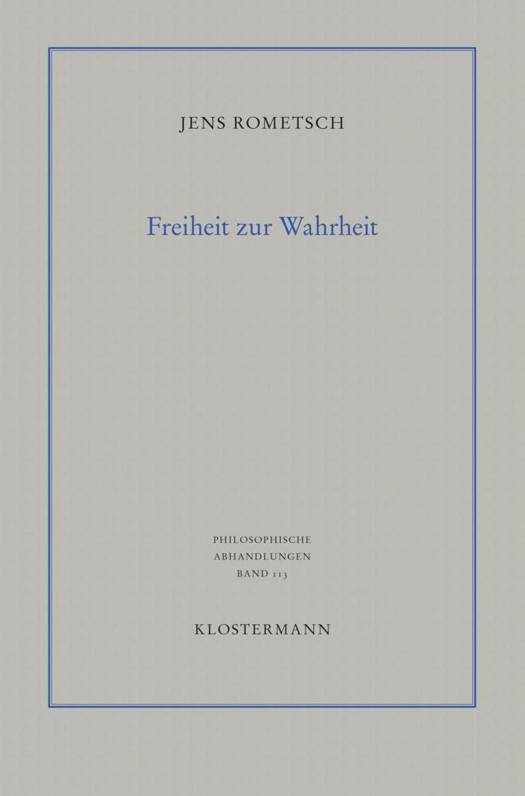
- Retrait gratuit dans votre magasin Club
- 7.000.000 titres dans notre catalogue
- Payer en toute sécurité
- Toujours un magasin près de chez vous
- Retrait gratuit dans votre magasin Club
- 7.000.0000 titres dans notre catalogue
- Payer en toute sécurité
- Toujours un magasin près de chez vous
87,95 €
+ 175 points
Description
Wie kommen unsere Erkenntnisse zustande? Ist deterministisch festgelegt, wie wir sie bilden, lassen sich skeptische Einwände nicht mehr abwehren. Wir könnten auf Irrtümer geeicht sein. Verläuft unsere Erkenntnisbildung stattdessen ungebunden und frei, entfällt jeglicher Zwang zum Irrtum. Deshalb empfiehlt es sich, Erkenntnisbildung als plurimodales Zusammenwirken von Tätigkeiten der Wahrnehmung, Imagination und Verbegrifflichung zu verstehen, deren Verlauf nie durch die Bedingungen festgelegt ist, unter denen er gerade steht. Ferner sollten wir uns deshalb nicht als bloße "res cogitans" beschreiben, ganz gleich in welcher philosophischen Absicht: Wir können in keiner Hinsicht darauf festgelegt sein, nur Tätigkeiten der Erkenntnisbildung auszuüben. In der Auseinandersetzung mit zwei großen historischen Beispielen werden diese Thesen entwickelt und erprobt. Es wird gezeigt, warum René Descartes sie unerwartet vertritt und mit welchen Folgen John Locke sie außer Acht lässt. How do our perceptions come about? If our ways of forming them is deterministically given, skeptical objections can no longer be warded off. We might as well be calibrated for errors. If, instead, our cognition works unbounded and free, there is no compulsion to fall prey to error. It is therefore advisable to understand cognitive formation as a plurimodal interaction of activities of perception, imagination and verbalization, the course of which is never determined by the conditions under which it currently stands. Further, we should not describe ourselves as mere "res cogitans," no matter what the philosophical intentions: there is no sense in assuming that we are determined to perform activities of cognition only. In dealing with two major historical examples, these assumptions are developed and tested. It is shown why René Descartes unexpectedly champions them, and which consequences ensue from John Locke´s disregarding them.
Spécifications
Parties prenantes
- Auteur(s) :
- Editeur:
Contenu
- Nombre de pages :
- 392
- Langue:
- Allemand
- Collection :
- Tome:
- n° 113
Caractéristiques
- EAN:
- 9783465043492
- Date de parution :
- 10-07-18
- Format:
- Livre broché
- Dimensions :
- 156 mm x 236 mm
- Poids :
- 600 g

Les avis
Nous publions uniquement les avis qui respectent les conditions requises. Consultez nos conditions pour les avis.






